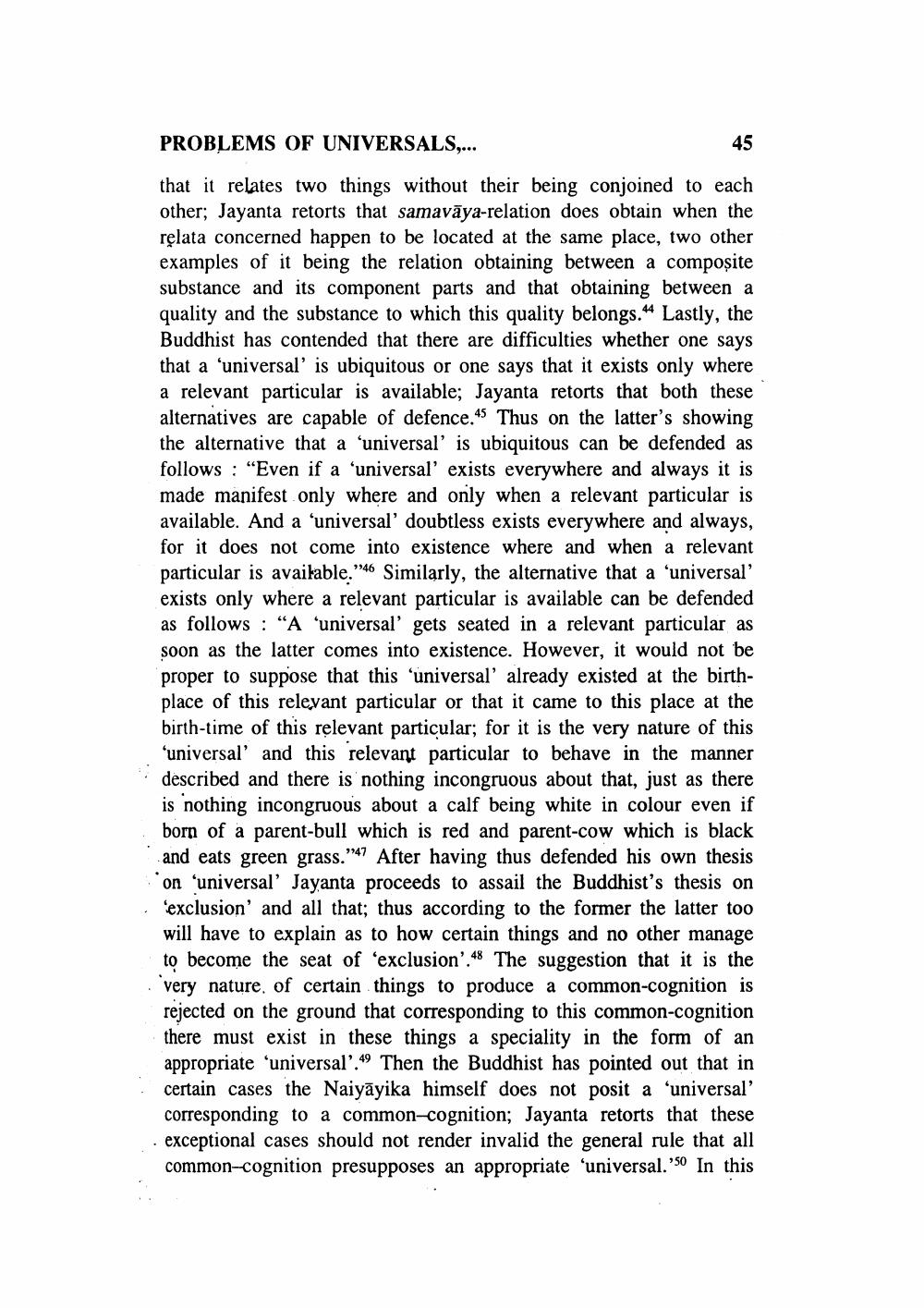________________
PROBLEMS OF UNIVERSALS,...
45
that it relates two things without their being conjoined to each other; Jayanta retorts that samavāya-relation does obtain when the relata concerned happen to be located at the same place, two other examples of it being the relation obtaining between a composite substance and its component parts and that obtaining between a quality and the substance to which this quality belongs. 44 Lastly, the Buddhist has contended that there are difficulties whether one says that a 'universal' is ubiquitous or one says that it exists only where a relevant particular is available; Jayanta retorts that both these alternatives are capable of defence.45 Thus on the latter's showing the alternative that a 'universal' is ubiquitous can be defended as follows : "Even if a 'universal' exists everywhere and always it is made manifest only where and only when a relevant particular is available. And a universal' doubtless exists everywhere and always, for it does not come into existence where and when a relevant particular is available.”46 Similarly, the alternative that a ‘universal' exists only where a relevant particular is available can be defended as follows: "A 'universal' gets seated in a relevant particular as soon as the latter comes into existence. However, it would not be proper to suppose that this ‘universal' already existed at the birthplace of this relevant particular or that it came to this place at the birth-time of this relevant particular; for it is the very nature of this ‘universal' and this relevant particular to behave in the manner described and there is nothing incongruous about that, just as there is nothing incongruous about a calf being white in colour even if born of a parent-bull which is red and parent-cow which is black and eats green grass.":47 After having thus defended his own thesis on 'universal' Jayanta proceeds to assail the Buddhist's thesis on 'exclusion and all that; thus according to the former the latter too will have to explain as to how certain things and no other manage to become the seat of 'exclusion'.48 The suggestion that it is the very nature, of certain things to produce a common-cognition is rejected on the ground that corresponding to this common-cognition there must exist in these things a speciality in the form of an appropriate universal'.49 Then the Buddhist has pointed out that in certain cases the Naiyāyika himself does not posit a ‘universal' corresponding to a common-cognition; Jayanta retorts that these exceptional cases should not render invalid the general rule that all common-cognition presupposes an appropriate 'universal.'50 In this




